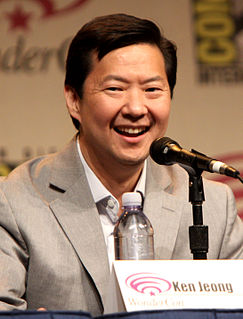A Quote by Thomas Jane
Sharing the same vision for what's on the page is always a good idea. The director's job is to establish what that is and make sure that everyone sticks to it when it comes down to actually executing it.
Related Quotes
Sharing the same vision for what's on the page is always a good idea. The director's job is to establish what that is and make sure that everyone sticks to it when it comes down to actually executing it. Establishing what the vision is and being able to stick to it is the job, and everyone should be on the same page going in.
My teachers believe that the creative producer's job is to service the vision of the director, to stay within schedule and budget, and to get the studio what they need, but you work for the director to get their vision on the screen. That's not how everyone approaches producing, but it is certainly how directors like you to approach producing. How I was brought up is that my job is to help you make the movie you want to make.
The process of working with the second unit director and basically sharing your workload with another director is such an interesting, delicate thing - and entrusting that person with your vision and making sure that you are not adding a completely different aesthetic to the mix that you don't have to contend with in editing.

































